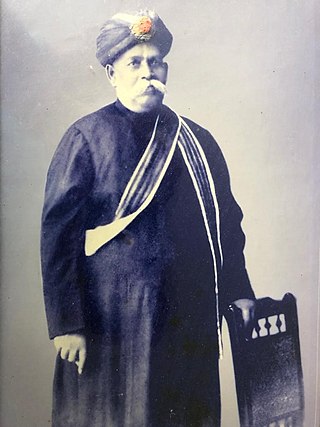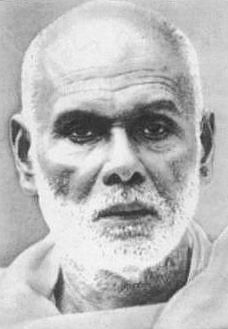
The Kingdom of Travancore, also known as the Kingdom of Thiruvithamkoor or later as Travancore State, was kingdom that lasted from c. 1729 until 1949. It was ruled by the Travancore Royal Family from Padmanabhapuram, and later Thiruvananthapuram. At its zenith, the kingdom covered most of the south of modern-day Kerala and the southernmost part of modern-day Tamil Nadu with the Thachudaya Kaimal's enclave of Irinjalakuda Koodalmanikyam temple in the neighbouring Kingdom of Cochin. However Tangasseri area of Kollam city and Anchuthengu near Attingal in Thiruvananthapuram were parts of British India.

Nedumangad is a municipal town in the Thiruvananthapuram district in the Indian state of Kerala. It is the headquarters of Nedumangad Tehsil and Nedumangad Revenue Division. It is a suburb of the extended metropolitan region of Thiruvananthapuram. It is located around 16 km (9.9 mi) to the north-east of Thiruvananthapuram on the State Highway 2. It is an important commercial center in the district. It is a growing commercial and educational hub and all important government institutions are situated in the town. The Nedumangadu market has significance in southern Kerala.

Ayyappan Pillai, better known as Chattampi Swamikal was a Hindu sage and social reformer whose thoughts and work influenced the launching of many social, religious, literary and political organisations and movements in Kerala and gave voice to those who were marginalised.

Thiruvananthapuram District is the southernmost district in the Indian state of Kerala. The district was created in 1949, with its headquarters in the city of Thiruvananthapuram, which is also Kerala's administrative centre. The present district was created in 1956 by separating the four southernmost Taluks of the erstwhile district to form Kanyakumari district. The city of Thiruvananthapuram is also known as the Information technology capital of the State, since it is home to the first and largest IT park in India, Technopark, established in 1990. The district is home to more than 9% of total population of the state.

Chengannur is a municipality in the Alappuzha district of Kerala, India. It is located 37 km (23.0 mi) south of the district headquarters in Alappuzha and about 98 km (60.9 mi) north of the state capital Thiruvananthapuram. As per the 2011 Indian census, Chengannur has a population of 23,466 people, and a population density of 1,607/km2 (4,160/sq mi).

Kilimanoor is a panchayat and a town in the Chirayinkeezhu taluk of Thiruvananthapuram district in Kerala, India. It is located on MC/SH 1 Road, 33 kilometres (21 mi) North-west of the city of Thiruvananthapuram (Trivandrum), 14 km (8.7 mi) east of Attingal and 20 km (12 mi) east of Varkala.

Velayudhan Chempakaraman Thampi ofThalakulam (1765–1809) was the Dalawa or Prime Minister of the Indian kingdom of Travancore between 1802 and 1809 during the reign of Bala Rama Varma Kulasekhara Perumal. He is best known for being one of the earliest individuals to rebel against the British East India Company's authority in India.

Ananthapadmanabhaswamy Temple or Ananthapura Lake Temple is a Hindu temple in the middle of a lake in the village of Ananthapura, around 6 km from the town of Kumbla in Manjeshwaram Taluk of Kasaragod District of Kerala, South India. This is the only Hindu lake temple in Kerala, and as per some traditions, is believed to be the original seat (Moolasthanam) of Ananthapadmanabha Swami Thiruvananthapuram. It is considered one among the 108 Abhimana Kshethram of Vaishnavate tradition. Legend has it that this is the original site where Ananthapadmanabha settled down.
Kundara is a satellite town in Kerala and is part of the Kollam Metropolitan Area, India. Kundara is situated at the eastern end of Kollam city. Kundara is significant for its historic involvement in the Indian independence movement.

Enathu is a village in Adoor Thaluk of Pathanamthitta district in the state of Kerala, India.

Chirayinkeezhu is a town in Thiruvananthapuram district in the Indian state of Kerala. It was also hometown of famous Malayalam Film actor Prem Nazir. It is the seat of Chirayinkeezhu taluk.
Mannadi is a village in Kadampanad grama panchayat at Adoor Taluk, Pathanamthitta District of Kerala, India.

Diwan Bahadur Sir Veeraraghavapuram Nagam Aiya was an Indian pioneer, historian, civil servant, and chronicler who served as the Dewan in the erstwhile princely state of Travancore.
Chirayinkeezhu Taluk is a Taluk (tehsil) in Thiruvananthapuram district in the Indian state of Kerala. It is shares border with Varkala Taluk in North and with Thiruvananthapuram Taluk in South. It comprises 12 panchayats and Attingal Municipality. Chirayinkeezhu taluk is the birthplace of a host of illustrious personalities like the painter Raja Ravi Varma, the great poet and social reformer Kumaran Asan and Prem Nazir etc.
The Travancore rebellion against the British East India Company was led by the prime ministers of the Indian states of Travancore and Cochin in 1808–09 with support from Sikhs ruling Punjab.
Mundankavu is a village situated 2 kilometres (1.2 mi) from Chengannur town centre in Alappuzha district, Kerala, India. It lies on the banks of the river Pampa. It is known as Vadakekkara which is situated on the northern banks of River Pampa. Mundancavu(Mundankavu) ward is part of Chengannur Municipal town.
Thycaud Ayyavu Swamikal was a spiritualist and social reformer. He was the first to challenge caste customs in Kerala during a time when caste restrictions and untouchability were at their peak.
Palkulangara is an urban neighbourhood of Thiruvananthapuram, the capital of the Indian state of Kerala.

The Battle of Quilon was fought on 15 January 1809 at Cantonment Maidan in Quilon, an important port city and business hub on the southwest coast of India. The conflict involved troops of the Indian kingdom of Travancore, led by the then Dewan of Travancore, Velu Thampi Dalawa, and a detachment of the British East India Company under Colonel Chalmers. The battle lasted for only six hours and is closely associated with the social and political history of Kerala.

The reformation movement in Kerala refers to a socio-cultural shift that began in the late 19th century, resulting in significant transformations in the social fabric of the southern Indian state of Kerala.













